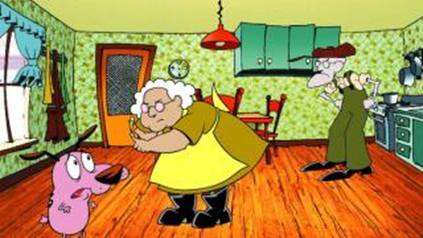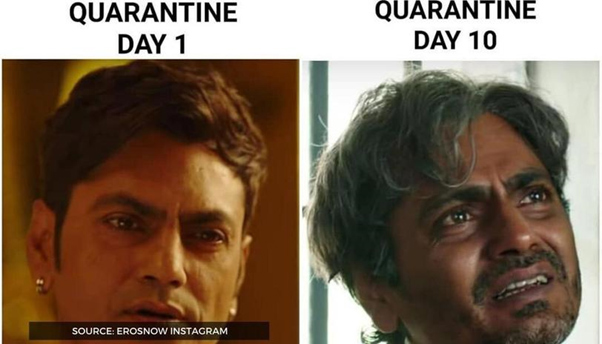Are We Really Afraid of Death?
Death is felt and not described by those who have been through it. It can only be described by those who have survived. So, what do the observers say of death? Death does not invoke a singular feeling. For some, it is a fearful thing; Shakespeare says, “Ay, but to die, and go we know not where?” It is this cessation of all motion, which is associated with life, that perhaps makes death fearful. Tagore says at another time, at another part of the world – “Death is not extinguishing the light; it is only putting out the lamp because the dawn has come”. However, no one dares to ask, can the dead see this dawn? Perhaps, to the dead, this new dawn is as dark as the darkest night. This image of an eternity of darkness and solitude perhaps makes death so dreadful. Even, the very idea of heaven hardly encourages solitary confinement and eternal sleep as ultimate truths. Religion offers an escape from this fearful predicament.
Mankind has made tremendous progress in the last few centuries. Medical science has enhanced the average duration of mortal life. Like a forgetful child, man has embraced materialistic plenty to add meaning to his stay on earth. However, the influx of an invisible array army of virulent savages, who has got no materialistic desire, has turned man perplexed. He faces an army of microscopic organisms, which do not desire anything apart from man’s life. The fight is then between one form of life and another. The fight is between life and death.
The War between Life and Death
I have used the word “fight” to describe the interaction of these two species. I understand that fight requires resistance. Man has undertaken several strategies to resist death in the form of COVID 19. Research for vaccination, masks, instant test kits is underway. A message of hope has been rallied, that a potential vaccine has been prepared, which is yet to undergo human trials. Needless to say, we are waging the war against this alien, invisible enemy. Well, of course, its alien, why would it not be? The virus does not understand racial segregation, barriers of caste, hierarchies of gender. Nor does it understand filiality, love, family, age. Nor does it conform to codes of honour and rules of conventional warfare. In other words, the enemy is as ruthless as they come.
Previously, I have said that the fear of death, invokes responses which may be categorised differently. One such response is laughter! Smiling even in the face of death. Some may call it ignorance, some may term it irresponsible, however, I would like to ask, is it also not courage? Remember that 90s cartoon show about a dog and its masters which we all watched? I am talking about Courage, the Cowardly Dog.

Courage was indeed afraid of all the supernatural phenomena taking place at his house, but he refused to quit. He gathered the traces of sanity left in him and convinced himself that he must act in order to save his house. In doing so, he saved the day.
Laughter as Resistance
I believe a large portion of our society identifies with Courage these days. Social media is flooded with memes on COVID 19. If some are calling it offensive, some laugh them away. I believe, it is a sort of resistance towards the finality of death. It is a resistance towards an enemy who is ruthless and fatal. It is a desperate attempt to clutch life, even when in the vicinity of death.

Of many memes, one such meme focuses on people who have their birthdays in March and April. I find this association of death and a reminder of life to be of special significance. Beneath all the morbidity, there is a movement towards life. A desperate attempt to connect with others, even amid this lockdown.
Resistance is not always visible. Sometimes resistance may not yield the person any validation from the government and its institutions. Resistance may not always yield project grants. However, resistance like this grants courage and the conviction to carry on, unafraid even when the existential dread of insignificance gnaws at mankind.
Dealing with Lockdown
Initially, it may seem that staying home and not stepping out of the perimeters of one’s comfort zone is not that challenging a task. However, we must not forget that solitary punishment is one of the harshest disciplining methods practiced even today. The duration of the punishment is not to exceed three months as stated by the Indian Penal Code. We are on lockdown, albeit with our beloved (or, perhaps not so loved) family members. Not only that, but we have completed a month and counting. It is absolutely not as unsettling as solitary confinement. No comparison can be done on these two issues. But my point is, there is no denying that it is certainly challenging.

Probably, the creator of this meme wanted to mean lockdown, but the word quarantine has been used. It is not an easy matter, but we must think, why are memes like this one popular around the social media platforms? Can we generalise everyone as insensitive who are sharing this image? Or perhaps there is another aspect which we are often overlooking. This apparent helplessness portrayed in the image is juxtaposed with the laughter emanating from its circulation. People are afraid, they are helpless during this unprecedented crisis called COVID 19. Yet perhaps memes like this are an attempt to laugh away their fear and passivity.
Let me not distort this light-hearted mood through a proper conclusion. Because a topic like this does not demand an ending note. Instead, I want to stay faithful to the topic, and end today’s musing by using an immensely popular meme from the Game of Thrones.

Visited 1982 times, 1 Visit today


